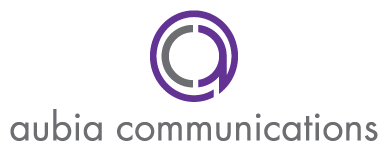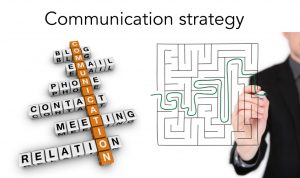
“Go off the record with me on this, and I can make sure we consider your next event for some positive coverage.”
Tempting words coming from a major regional media outlet. If I gave up some information that was being held by regulation, I wouldn’t be identified, I was almost guaranteed to receive favorable coverage for my next media pitch to the outlet, and I could certainly earn some brownie points with this reporter for the future. Did I dare take the risk?
What is ethical decision making?
When it comes to making the right decision, it’s not always as easy as it sounds. There are many factors to take into consideration and angles from which to view the issue.
Ethical decision making is taking the time and effort to think through the situation fully, gathering all the appropriate facts and opinions to make the best decision for all involved. This means gathering the viewpoints not just of the client or your employer but also talking with the stakeholders.
After this gathering of facts and interviews with everyone affected by the outcome, then a decision should be made. In making this final decision, you should strive to do what’s best for all involved while upholding ethical guiding principles.
Sometimes these two factors, best for all and ethical principles, will be in direct violation of each other. When that happens, be prepared for some tough introspection. In the end, you have to decide what you can live with doing.
Ethical decision making can vary from the routine to the extremely taxing. Some decisions are obvious, others lurk in a murky area. By practicing ethical decision making in all areas of your professional and personal life, the process can become easier and more natural.
The ethical decision making process
The next time you are faced with an ethical dilemma, use this six-step process to come to the right solution.
1. Define
In this first step, you want to define the exact situation you are facing and why it may present an ethical dilemma.
From my own experience above, would it have been ethical of me to release information that was protected by organization regulations in exchange for future gains? A rule of thumb I like to use is that if I’m not willing to have my name associated with the decision, then it’s unethical for me.
2. Identify internal and external factors
Next, consider all the factors that affect this decision, such as political, legal, financial and social issues. Look at the situation from all angles.
When I was making the decision whether or not to go off record, I knew I wouldn’t be breaking any laws if I did, but I would be causing potential emotional distress and political unrest among community members and leadership.
3. Identify key values
Look to your organization’s values when making tough decisions. These are part of the guiding framework that will point you in the right direction.
At the time of my ethical decision, I was working for the U.S. Army. The U.S. Army values of Loyalty, Respect and Integrity guided my ethical decision making process. In the way I chose to go, I needed to provide Loyalty to the constituents my decision would affect. I needed to Respect the protected information and what implication it may have caused if released before it was allowed. Finally, my Integrity to do what was right was at stake with my final decision.
4. Identify the audiences that will be affected by your decision
Certain audiences will be affected by how you choose to act. Each of these audiences and your obligations to them need to be considered in your ethical decision making process.
In deciding whether or not to release the protected information, my audiences were the family members that had a right to keep the information protected for a certain period of time, the media outlets that had a right to inform the public, and my leadership that had a duty to protect their community from undue invasion of privacy. I owed the family members a buffer between them and the media so they could mourn in peace and privacy, I owed the media the information that was releasable at the time, and I owed my leadership the ability to trust my competency in fulfilling the obligations of my job professionally.
5. Select the ethical principles to guide you
Whatever code of ethics you prescribe to, be that from your organization, professional society or some personal guide, use what you believe in and uphold the principles to make the decision that has to be made.
As a member of the Public Relations Society of America, I prescribe to the PRSA Code of Ethics. In this particular case, I used the values of Honesty and Fairness in guiding my final decision. I needed to be Honest with the media members while also being able to face the community and leadership with my actions. I owed the constituents and the media Fairness in balancing one set of needs against the other.
6. Make the decision and justify
After all the steps have been completed, you’ve thought through the issue and studied it from all vantage points, then you take that leap and stick it. You make your decision and stand behind what you’ve decided.
In the end, I decided not to go off record and keep the information protected until it was releasable. By doing so, I protected the privacy of the constituents and avoided any undue emotional distress and political unrest, I was fair to all the media outlets, when I could release the information doing so at the same time. Finally, I upheld the values of the Army and the PRSA Code of Ethics. I respected myself and my decision.
How do you make ethical decisions?
Now that you have the tools to complete the ethical decision making process, I hope you will use it in all aspects of your life. How do you face ethical dilemmas? What guides your ethical decision making process?



